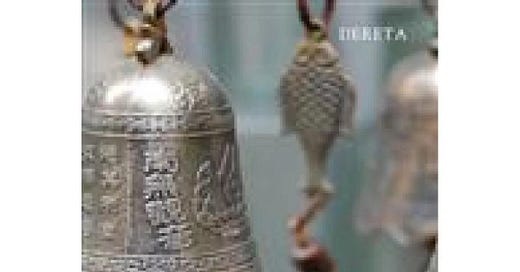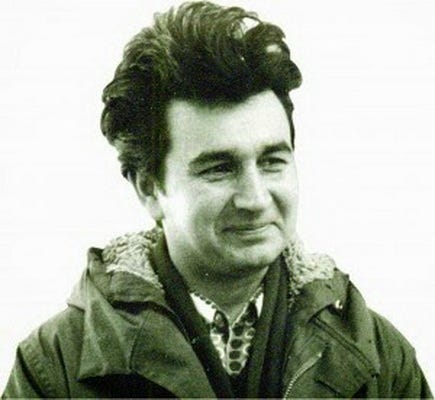Title: Katmandu
Author: Stevan Pešić
Publisher: Dereta
Publication Date: 1982
Welcome to Vintage Cafe, a reader-supported newsletter exploring music, film, books, art, travel, and coffee. By subscribing for just $6 a month, you support independent writing and unlock exclusive content.
Stevan Pešić’s Katmandu is an evocative and introspective work that transcends the boundaries of traditional travel literature, blending philosophical musings, personal reflection, and cultural exploration into a singular literary experience. First published in 1982, the book chronicles a journey that is as much internal as it is external. While ostensibly a travelogue detailing Pešić’s experiences in Kathmandu, Nepal, the narrative reveals itself to be a profound meditation on the nature of identity, spirituality, and human existence.
Pešić, a Serbian writer, poet, and playwright, is known for his multifaceted literary output, which often explores themes of self-discovery, cultural intersections, and the fluidity of identity. Despite his literary prowess, Pešić often remained at the margins of critical acclaim during his lifetime. His works, characterized by a deeply personal and philosophical lens, did not conform to mainstream literary trends, which may explain why he was celebrated more as an outsider than as a central figure in Serbian literature. His works reflect a deep engagement with both Eastern and Western philosophical traditions, drawing from his extensive travels across Asia, particularly in India and Nepal. These experiences gave rise to Katmandu and other works like Svetlo ostrvo (The Bright Island) and Tibetanci (The Tibetans).
Katmandu, in particular, has achieved a cult status, often described as one of the finest examples of travel literature in Serbian literary history. It is often regarded as his most personal and resonant work, capturing the essence of his literary ethos while offering readers a glimpse into his inner world. Compared to his other works, such as Svetlo Ostrvo (Bright Island), which also explores themes of otherness and introspection, Katmandu feels especially rooted in its geographical and spiritual setting.
Keep reading with a 7-day free trial
Subscribe to Vintage Cafe to keep reading this post and get 7 days of free access to the full post archives.






